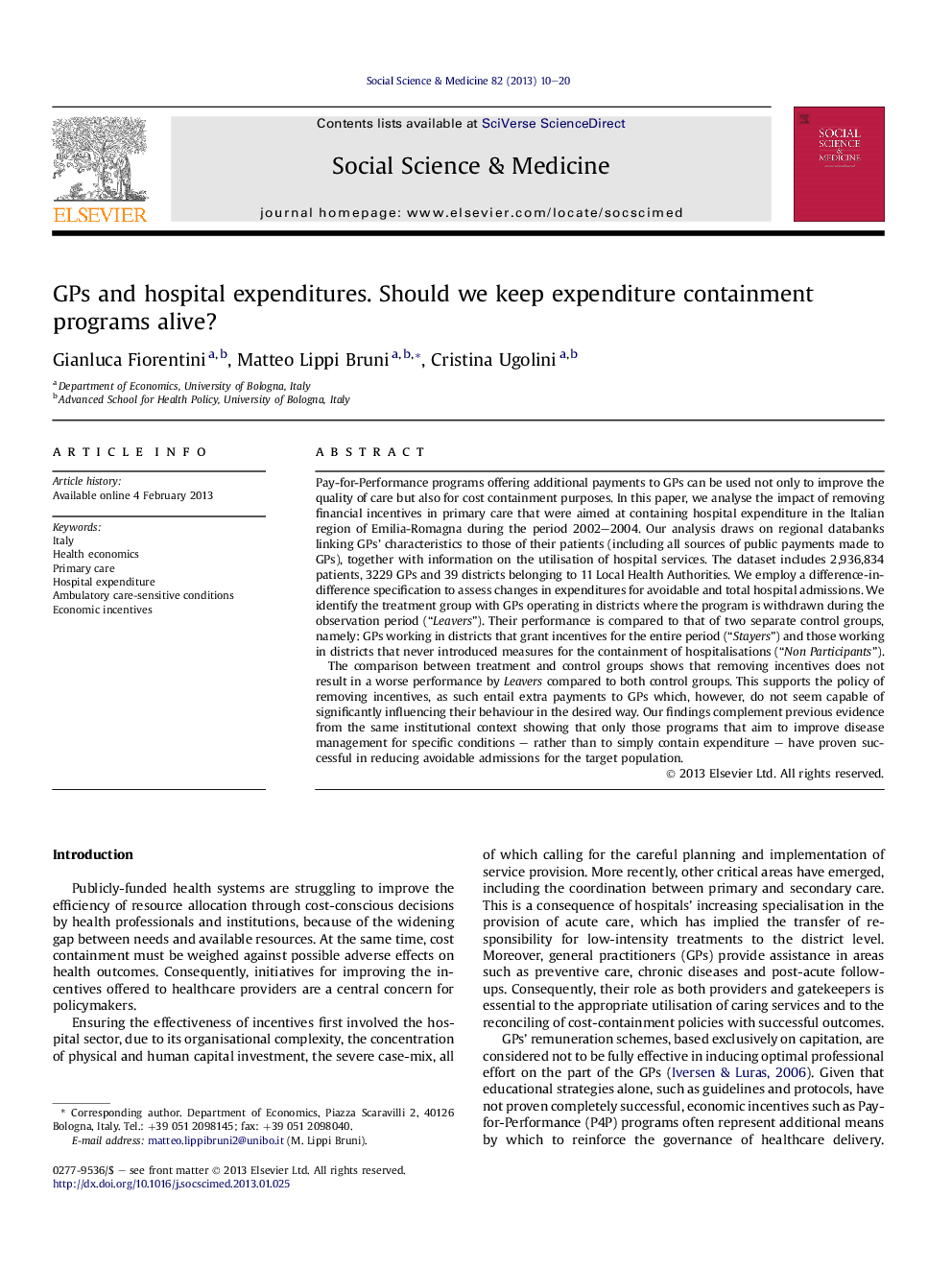| Article ID | Journal | Published Year | Pages | File Type |
|---|---|---|---|---|
| 952340 | Social Science & Medicine | 2013 | 11 Pages |
Pay-for-Performance programs offering additional payments to GPs can be used not only to improve the quality of care but also for cost containment purposes. In this paper, we analyse the impact of removing financial incentives in primary care that were aimed at containing hospital expenditure in the Italian region of Emilia-Romagna during the period 2002–2004. Our analysis draws on regional databanks linking GPs' characteristics to those of their patients (including all sources of public payments made to GPs), together with information on the utilisation of hospital services. The dataset includes 2,936,834 patients, 3229 GPs and 39 districts belonging to 11 Local Health Authorities. We employ a difference-in-difference specification to assess changes in expenditures for avoidable and total hospital admissions. We identify the treatment group with GPs operating in districts where the program is withdrawn during the observation period (“Leavers”). Their performance is compared to that of two separate control groups, namely: GPs working in districts that grant incentives for the entire period (“Stayers”) and those working in districts that never introduced measures for the containment of hospitalisations (“Non Participants”).The comparison between treatment and control groups shows that removing incentives does not result in a worse performance by Leavers compared to both control groups. This supports the policy of removing incentives, as such entail extra payments to GPs which, however, do not seem capable of significantly influencing their behaviour in the desired way. Our findings complement previous evidence from the same institutional context showing that only those programs that aim to improve disease management for specific conditions – rather than to simply contain expenditure – have proven successful in reducing avoidable admissions for the target population.
► This work investigates the influence of Pay-for-Performance paid to GPs for meeting policy goals set by healthcare authorities. ► We analyse the impact of removing incentives for containing hospitalisation in a group of districts in Emilia-Romagna, Italy. ► We use a difference-in-difference methodology and two separate control groups to control for potential sources of bias. ► Removing the incentives does not alter the performances of the districts involved with respect to any control group.
